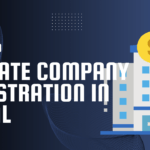
A Consultancy License in Nepal refers to the official permit that gives one the mandate to practice consultancy services within any field, be it business, engineering, financial, or legal services. It is issued by the Department of Industry or other professional bodies depending on the consultancy area involved.
To get a consultancy license, an applicant has to apply with the necessary documents to prove professional qualification, business registration, and a detailed business plan. Compliance is to be shown with regard to the industry standards and regulations.
The consultancy license is important in ensuring that consultancy businesses are offered by competent professionals who observe good ethical standards and principles, which are in line with regulatory requirements. This helps in enhancing credibility and trust with the clients by ensuring that consultants are recognized by the authorities and work within the legal framework.
This license, therefore, becomes very imperative for the sustenance of quality and professionalism in this very business of consultancy.
What is a Consultancy License?
A Consultancy License is an official permit required for individuals or firms offering professional consulting services in fields like business, finance, or engineering.
Issued by relevant authorities, it ensures compliance with industry standards, professional qualifications, and legal requirements, establishing credibility and regulatory adherence for consulting operations.
Which authority grants Consultancy License in Nepal?
In Nepal, the authority responsible for granting consultancy licenses includes:
- Department of Industry (DoI):
- Role: The DoI is the primary authority for registering businesses, including consultancy firms, and issuing business licenses.
- Process: Businesses must submit a registration application along with necessary documents to obtain a consultancy license.
- Office of the Company Registrar:
- Role: This office handles company registration and legal compliance, which is a prerequisite for obtaining a consultancy license.
- Process: Companies must be officially registered before applying for a consultancy license.
- Local Municipality:
- Role: In some cases, local municipalities may also be involved in issuing local business permits or licenses for consultancy services, depending on the specific locality.
- Process: Consultancies operating in urban areas may need to secure additional local permits or approvals.
- Professional Associations (if applicable):
- Role: For specialized consultancy services, certain professional associations or regulatory bodies may require registration or certification.
- Process: These associations may have their own licensing or certification processes in addition to the general business license.
What is the process of obtaining a Consultancy License in Nepal? (In 4-5 Detailed Steps)
Obtaining a consultancy license in Nepal involves the following detailed steps:
- Prepare Documentation: Gather necessary documents, including a completed application form, company registration certificate, PAN or VAT registration certificate, and proof of identity for the company’s owners or directors.
Prepare a detailed business plan outlining your consultancy services and organizational structure.
- Submit Application: Apply for the consultancy license at the local Office of the Company Registrar or relevant regulatory authority.
Submit the completed application form along with all required documents and the business plan.
- Review and Approval: The application will be reviewed by the relevant authorities, who will assess the compliance of your business plan with local regulations and standards.
They may request additional information or documents during this stage.
- Pay Fees: Pay the necessary application and processing fees as required by the local authority. Obtain and keep a receipt as proof of payment.
- Receive License: Once the application is approved, receive the consultancy license. Ensure compliance with any conditions set forth by the licensing authority and adhere to all regulatory requirements during your consultancy operations.
What are the Documents required for a Consultancy License in Nepal?
To obtain a consultancy license in Nepal, you generally need to provide the following documents:
- Business Registration Documents: Proof of business registration with the Department of Industry or Office of the Company Registrar.
- Trade License: A valid trade license issued by the local municipality or city office.
- Company Profile: A detailed company profile outlining the consultancy services offered, including the scope of work and target clients.
- Professional Qualifications: Proof of qualifications and credentials of the consultants, including academic degrees and professional certifications.
- PAN Certificate: A Permanent Account Number (PAN) certificate from the Inland Revenue Department.
- Office Address Proof: Proof of office address, such as a lease agreement or property ownership documents.
- Identity Proof: Identification documents of the company’s directors or authorized representatives, such as citizenship certificates or passports.
- Application Form: Completed application form for a consultancy license, available from the local municipality or Department of Industry.
- Operational Plan: A business plan or operational strategy detailing the consultancy’s approach, services, and organizational structure.
Read More:
What are the requirements for a Consultancy License in Nepal?
To obtain a consultancy license in Nepal, you typically need to meet the following requirements:
- Business Registration: Proof of registration of the consultancy firm with the Office of the Company Registrar.
- Office Address: A valid office address with documentation to prove ownership or lease.
- Professional Qualification: Evidence of relevant professional qualifications and experience of key personnel.
- Business Plan: A detailed business plan outlining the scope of consultancy services.
- Tax Registration: Obtain a Permanent Account Number (PAN) from the Inland Revenue Department.
- Local Authority Approval: Compliance with local municipal regulations and any additional approvals required by local authorities.
- Insurance: Relevant professional indemnity insurance, if applicable.
What is the time taken for a Consultancy License in Nepal?
Obtaining a consultancy license in Nepal typically takes around 2 to 4 months.
The process involves several steps, including application submission, verification of documents, and compliance with the relevant regulations set by the Department of Industry or other relevant authorities.
What is the cost for a Consultancy License in Nepal?
The cost for obtaining a consultancy license in Nepal typically includes several components:
- Application Fee: Charged by the relevant regulatory body or municipal office.
- Processing Fee: Covers administrative costs for processing the license application.
- Professional Fee: May include fees for consultancy services or legal assistance.
What are the benefits of a Consultancy License in Nepal?
A consultancy license in Nepal provides several benefits:
- Legal Recognition: Grants formal legal recognition to consultancy services, ensuring compliance with national regulations and standards.
- Business Credibility: Enhances the credibility of the consultancy firm, attracting clients and establishing trust in the market.
- Access to Contracts: Enables eligibility for government and private sector contracts that require licensed consultancy services.
- Client Assurance: Assures clients of professional standards and adherence to industry best practices.
- Networking Opportunities: Provides opportunities to connect with industry professionals, potential clients, and other consultants.
- Professional Growth: Facilitates access to industry events, seminars, and training, contributing to professional development and expertise.
- Financial Support: Opens avenues for financial support, including loans and grants, available to licensed businesses.
- Insurance Benefits: Allows for obtaining professional liability insurance, covering potential risks and legal liabilities.
- Regulatory Compliance: Ensures adherence to legal and regulatory requirements, reducing the risk of fines or legal issues.
- Market Advantage: Offers a competitive edge over unlicensed consultants by demonstrating legitimacy and commitment to quality.







